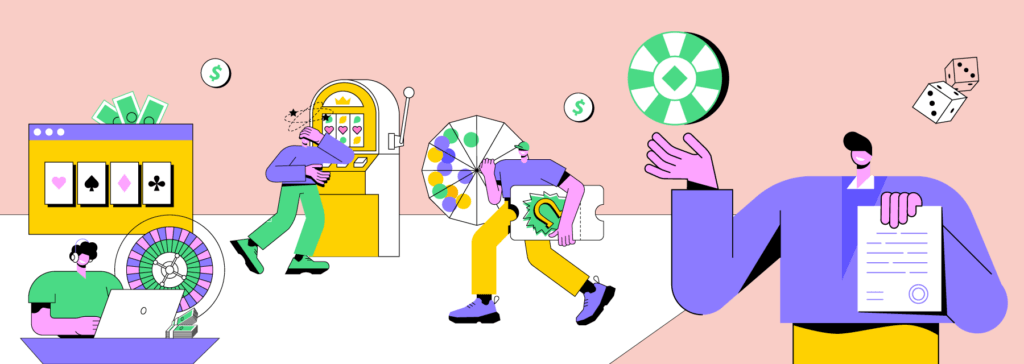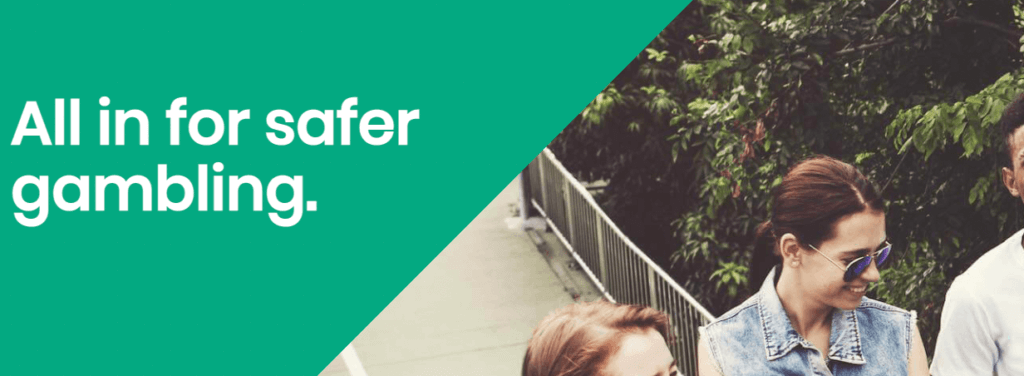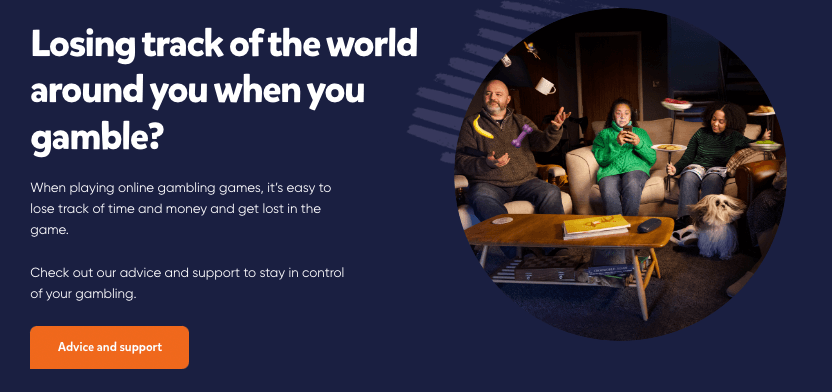The importance of Responsible Gambling cannot be overstated in modern society, especially with the increasing accessibility of gambling.
The idea of Responsible Gambling is integrated into legislation that mandates online casinos in Canada operators to implement various protective measures on their platforms, aimed at shielding at-risk players. Responsible Gambling introduces mechanisms designed to ensure a secure and enjoyable experience for players, respecting limits, and minimizing adverse consequences.
This article will delve into the extensive domain of Responsible Gambling . We will discuss how to support a friend dealing with gambling addiction, tips on identifying personal gambling issues, and ways to safeguard minors from potential harm.
Additionally, we will provide insights into tools available on online casino sites that aid in regulating gambling online, as well as contact information for organizations in Canada that can offer assistance if you feel you might need it.

What is Responsible Gambling?
Responsible Gambling encompasses a wide array of policies and regulations that apply to different stakeholders within the gambling industry. Its primary goal is to ensure that the best quality standards are upheld to create a safe environment for players , protecting them from the potential risks associated with online gambling.
Under the ethos of Responsible Gambling, players are encouraged to view gambling as a form of entertainment rather than a way to generate income. For most people, gambling serves as a recreational activity with spending limits based on personal finances. However, some individuals may allow gambling to dominate their lives, leading to destructive dependencies that can negatively affect themselves and those around them.
Licensed online casino operators Moreover, gaming providers are compelled to embrace the principles of Responsible Gambling across various facets of their operations. There are seven critical areas tied to Responsible Gambling that have been incorporated into the legal framework concerning iGaming:
- The protection of vulnerable players
- Preventing underage gambling
- A robust framework to combat criminal activities
- Protection for online payments
- A safe online environment
- Personal data privacy
- Responsible and ethical marketing
Every online gaming platform is required to maintain a dedicated section on Responsible Gambling. This section acts as a resource for players who might be looking to understand the concept more deeply or who suspect they may have a gambling issue.
While the specifics vary between different platforms, each typically offers a mixture of advice, strategies, information about gambling resources, a self-evaluation test, and further support.
Resources are also available to safeguard minors, detailing how each casino integrates Responsible Gambling principles into their operations. Perhaps most importantly, the Responsible Gambling section directs players to professional organizations that specialize in addressing gambling addiction.
Are you worried you may have a gambling addiction?
Do you think you might face gambling challenges? Reflect on the following questions, and if you respond with ‘yes’ to any, we highly recommend that you reach out to the organizations listed below that provide counseling for gambling issues.
- Do you feel guilty about the amount of money you spend on gambling?
- Do you find excitement only in gambling significant amounts of money?
- After losing, do you struggle to stop gambling?
- Is gambling causing financial issues for you or your household?
- Are your relationships, employment, or education suffering due to gambling?
- Is gambling leading to health problems, such as anxiety or stress?
- Do you frequently feel restless when you're not gambling?
- Do you suspect you may have a gambling issue?
Assisting Someone with a Gambling Problem
Are you worried that a loved one might be grappling with a gambling challenge but are unsure of the signs? Recognizing the indicators of problem gambling can empower you to take steps that lead you both towards assistance. Initial signs often manifest as alterations in a person’s financial circumstances, time management, mood, and behavior. We will explore these three telltale signs in more detail.
Financial signs
- Sudden loss of funds from bank accounts or wallets
- Missing valuable items or belongings
- Regularly running low on finances despite having income
- Having multiple loans
- Unpaid bills
- Borrowing money regularly
- Lack of food at home
- Secrecy about financial records
How time is spent
- Spending increasing amounts of time gambling
- Arriving late for appointments
- Frequently taking sick leave or additional days off from work
- Simple tasks taking a very long time
- Unexplained absences and secrecy
Mood and Behavioural signs
- Work performance is affected
- Becoming withdrawn from loved ones
- Consistently appearing anxious, upset, or irritable without a clear reason
- Changes in personality
- Manipulative behaviour
- Attempting to manipulate others using lies or threats
- Displaying feelings of hopelessness, sadness, and frustration
While recognizing these warning signs can be helpful, it's important to note that the root cause of the problem is often concealed. People may lie or become defensive when confronted about their gambling habits.
For concerned family members or friends, acknowledging that someone close to you may be facing a severe issue can be challenging. This acknowledgment can lead to feelings of guilt and self-blame for not noticing sooner. You may also feel hurt or betrayed. These emotional responses are entirely normal under such circumstances, and it can be tough to navigate these feelings while striving to comprehend the gambler’s situation.
Gaining insight into what the gambler is experiencing can foster a better connection with them. With mutual understanding, the individual struggling may feel safe to confide in you, allowing both of you to begin formulating strategies for addressing the problem, possibly even seeking help together.
Legal Gambling Age and Minors' Protection
A critical aspect of Responsible Gambling is the safeguarding of underage individuals. One effective approach to preventing underage gambling is to establish a minimum legal age for gambling activities. In Canada, gambling regulations are the responsibility of provincial authorities, resulting in variations in legal ages across regions. Generally, the legal gambling age is set at 19; however, for the benefit of our Canadian audience, we have compiled a list highlighting the legal ages in various provinces.
| Province | Legal Gambling Age | Province | Legal Gambling Age |
|---|---|---|---|
| Ontario | 19 | Quebec | 18 |
| Newfoundland | 19 | New Brunswick | 19 |
| Nova Scotia | 19 | Manitoba | 18 |
| Prince Edward Island | 19 | Saskatchewan | 19 |
| Alberta | 18 | British Columbia | 19 |
| Yukon | 19 | Northern | 19 |
| Nunavut | 19 |
Online casino operators are obligated to perform age verification checks to ensure that no one below the legal age is engaging in real money play. This process can occur electronically or by requesting necessary identification documents like IDs or passports from players.
However, the onus does not rest solely on the operators. Players who have minor children in their homes should take proactive measures to shield them from coming into contact with gambling-related content. Here are a few strategies you can adopt to ensure the safety of minors:
- Keep online casino login details stored securely away from minors
- Don’t save passwords on your computer
- Educate your children about gambling, its risks, and the legal age for participation
- Utilize parental control software on your devices
- Install website blocking software
The latter method is often one of the best defenses against minors accessing gambling websites or encountering gambling advertisements. Some useful tools include Net Nanny, CYBERsitter, CYBER PATROL, GamBan, GamBlock, and BetFilter.
Responsible Gambling Tools
A crucial aspect of effective Responsible Gambling involves the implementation of tools by online casino providers. These tools are integrated into player accounts and designed to help individuals monitor and manage their gambling activities. Below, we will investigate the types of tools available, their operation, and the advantages they offer.
Deposit Limit
As the name suggests, this useful tool enables you to set a limit on the total amount of money you can deposit within a day, week, or month. Once the limit is reached, you will be unable to deposit more funds until the specified time period has passed. This can be particularly beneficial for individuals who feel they might be overspending on gambling.
Loss Limit
This tool works differently from the deposit limit; it establishes a cap on the total amount you can lose within a specific time frame (daily, weekly, or monthly). Once you hit that loss limit, it prevents you from placing further bets, effectively mitigating your financial losses. This is an excellent resource if you find yourself beginning to lose more than you can afford.
Session Limit
If you feel you are spending excessive time gambling, this might be the tool for you. It allows players to evaluate the hours dedicated to gambling, offering a Reality Check regarding how much time is devoted to this leisure activity. The session limit tool enables you to restrict how long you can be logged into your account, automatically logging you out when your time is up.
Wagering Limit
This wagering limit tool allows you to control how much you can wager within a session or across a daily, weekly, or monthly period. It is a valuable safeguard if you sense you are starting to bet more than you should.
Transaction History
This tool generates a detailed summary of all transactions in your account. It includes comprehensive information regarding deposits, withdrawals, bets placed, outcomes, and any pending wagers. Players are strongly encouraged to utilize this tool to keep a close watch on their gambling activity to avoid becoming overwhelmed.
Self Exclusion
Players are always urged to take a step back from gambling if they feel it's becoming overwhelming. The Self-Exclusion tool permits you to temporarily close your account for however long you feel necessary. During this time, you will be unable to log in or participate in any gambling activities on that specific platform.
Players have the ability to opt for self-exclusion, which can last for a specific duration such as a day or week, or could extend to six months or even permanently. Choosing the permanent option means that the gambling platform will prohibit any future participation in games.
Self-Assessment
The Self-Assessment tool is a collection of reflective questions and statements that assist players in evaluating their feelings related to various gambling-related issues. By the end of the assessment, players receive a summary that highlights the negative influences gambling may have on different aspects of their lives, along with suggestions on how to mitigate those impacts using available resources.
Time Alert
The Time Alert feature functions as a helpful reminder that periodically informs players about the duration of their gaming sessions. It also includes updates on any changes to their account balance, aiming to empower players to make informed decisions on whether to continue or stop gambling.
Resources and organizations that can offer support and guidance
Currently, there is a plethora of assistance available for Canadian individuals struggling with gambling addiction. Numerous organizations across Canada are devoted to nurturing Responsible Gambling practices and diminishing the adverse effects associated with problematic gambling behaviors. Below is a compilation of these organizations, including links to their websites and contact information. Each website contains useful content regarding gambling addiction and various services for individuals seeking help. Services may include counseling sessions, support for affected family and friends, financial advice, self-help groups, and discussion forums. Staffed by trained professionals, these organizations are ready to offer necessary support for players and their families throughout their recovery journey.
Responsible Gambling Council (RGC)
The Responsible Gambling Council (RGC) is a respected and independent nonprofit entity that has been at the forefront of gambling problem prevention efforts in Canada for 35 years. The organization is committed to ensuring the implementation of safeguards in gambling activities while advocating for the well-being of individuals and the community at large.

The RGC aims to foster positive changes and elevate the focus on Responsible Gambling standards. Canadians interested in learning more about the Responsible Gambling Council can visit their official website or contact them using the information provided below:
- Website – www.responsiblegambling.org
- Phone – +1 (416) 499-9800
Canada Safety Council
The Canada Safety Council is a charitable organization operating independently, with a dedicated focus on safety advocacy. This group plays a crucial role as national leaders in safety awareness, providing essential information, education, and resources. As a nonprofit organization, they offer support for individuals facing gambling addiction, integrating this service within their broader community safety initiatives designed to enhance lifestyle safety. To get in touch with the Canada Safety Council, you may reach them through the following contact details:
- Website – www.canadasafetycouncil.org
- Email –
- Phone – 613-739-1535
CAMH
CAMH is Canada's largest mental health teaching hospital, known for establishing care standards, conducting research, and advocating for social change. In addition to mental health services, CAMH addresses various addiction issues, including gambling addiction. Their website features a dedicated section for problem gambling with valuable insights and resources. The hospital provides counseling services for both individuals facing gambling issues and their families. Canadians wishing to connect with CAMH can do so through their contact page.
- Website – www.camh.ca
- Phone – 416 535-8501
BeGambleAware
GambleAware operates as an independent organization that has formed a partnership with the UK Gambling Commission to implement the national strategy for Responsible Gambling, aiming to minimize gambling-related harm. This organization approaches excessive gambling as a public health concern. Following this model, GambleAware actively participates in integrated prevention services at the national level, working closely with expert agencies and other organizations. For more information, players can visit the GambleAware website.
- Website – www.gambleaware.org
- If you are seeking assistance, please explore –BeGambleAware.org
- Helpline – +44 0808 8020 133

GamCare
GamCare was established in 1997 with the goal of being a leading source for information, advice, and support for individuals coping with gambling issues. The organization runs the national helpline for the UK and offers treatment options for both players and their relatives. GamCare also engages in education and preventive measures related to gambling harm. While services are primarily geared toward UK residents, Canadian players might encounter the organization through online casinos that hold UK licenses. Canadians needing support can also access help through Gambling Therapy.
- Website – www.gamcare.org.uk
Gambling Therapy
Gambling Therapy provides a variety of online services tailored for problem gamblers and their families. This organization offers a secure space for group discussions, a comprehensive resource database, email assistance, and forums. They extend their support throughout North America, featuring multilingual live support, online therapy groups for gamblers, 24/7 forums for gambling therapy, and personalized email support.
- Website – www.gamblingtherapy.org
- In-site Live chat
- In-site email
Gamblers Anonymous
In contrast to formal organizations, Gamblers Anonymous is a supportive community of individuals who have experienced gambling problems at different levels. Within Gamblers Anonymous, members share their personal stories, hopes, and strengths to address collective challenges and assist each other. The organization's website hosts a chatroom, forum, resources, and a tool to locate meetings.
- Website – https://www.gamblersanonymous.org.uk/
- Email –
Gambling Addiction Help Worldwide
- USA – The National Council on Problem Gambling
- USA – Substance Abuse and Mental Health Services Administration (SAMHSA)
- Argentina – Juego Responsable – 0800-333-0333, WhatsApp 011-1524416058
- Belgium – VAD – 02 423 03 33
- Brazil – Anonymous Players – (11) 3229-1023
- Canada – ProblemGambling – 1-866-531-2600
- Chile – Psychologists Gambling Chile – 9 222 3860
- Deutschland – Spielen mit Verantwortung: Glücksspielsucht – 0800-1 37 27 00
- Spain – FEJAR – 900 200 225
- France – IFAC – + 33 (0)2 40 84 76 20
- Italy – TVNGA – 800 55 88 22
- Netherlands – AGOG – 0900-2177721 (€ 0.10 per minute)
- Norway – Help Line – 800 800 40
- Austria – Gambling Help – (1) 544 13 57
- Portugal – Jogo Responsável – 213 950 911 (SICAD – Serviço de Intervenção nos Comportamentos Aditivos e nas Dependências)
- Switzerland – Addiction Switzerland – 021 321 29 11
- Sweden – Support Line – 020-819 100 (09:00 to 21:00)